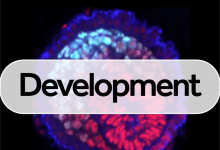MASTERING 10 ESSENTIAL SKILLS THROUGH CHATGPT A PATH TO SUCCESS IN SEO.
HOW TO LEAND MANY THINGS THROUGH CHATGPT

Mastering 10 Essential Skills through ChatGPT: A Path to Success in SEO
Introduction: In today’s digital landscape, Search Engine Optimization (SEO) plays a pivotal role in boosting online visibility and driving organic traffic to websites. To excel in this field, it is crucial to acquire a diverse set of skills. In this SEO-focused article, we will explore 10 key skills that you can learn and enhance through the power of ChatGPT, empowering you to achieve success in the ever-evolving world of SEO.
- Keyword Research: Master the art of keyword research by leveraging ChatGPT’s vast knowledge base. Discover valuable insights about user search intent, popular keywords, and long-tail phrases to optimize your website’s content and attract targeted traffic.
- On-Page Optimization: Learn the best practices for on-page optimization, including meta tags, URL structures, header tags, and keyword placement. Utilize ChatGPT to gain insights into SEO-friendly content formatting techniques and ensure your web pages are fully optimized for search engines.
- Technical SEO: Understand the technical aspects of SEO, such as website speed optimization, mobile responsiveness, XML sitemaps, and robots.txt files. ChatGPT can assist you in unraveling the complexities of technical SEO, ensuring your website is easily crawlable and indexable by search engines.
- Content Creation: Discover effective strategies for creating high-quality, engaging, and SEO-friendly content that resonates with your target audience. ChatGPT can provide ideas for generating compelling topics, structuring content, and incorporating relevant keywords to improve your website’s search visibility.
- Link Building: Explore various link building tactics, including guest blogging, outreach, and building relationships with authoritative websites. Leverage ChatGPT’s knowledge to understand link acquisition strategies and best practices, fostering strong backlink profiles for improved search rankings.
- Social Media Optimization: Harness the power of social media by learning how to optimize your content for platforms like Facebook, Twitter, LinkedIn, and Instagram. Discover tips and tricks for creating shareable content and engaging with your audience effectively through ChatGPT’s insights.
- Data Analysis and Reporting: Acquire skills in data analysis and reporting by leveraging ChatGPT’s expertise. Learn how to interpret SEO metrics, track website performance, and generate comprehensive reports to measure the success of your SEO campaigns accurately.
- Local SEO: Understand the nuances of local SEO, including optimizing your website for location-based keywords, managing online reviews, and creating Google My Business profiles. ChatGPT can provide valuable guidance on local SEO strategies to help your business thrive in specific geographical regions.
- Mobile SEO: With the growing dominance of mobile devices, mastering mobile SEO is crucial. Learn about responsive design, mobile-friendly page speed, and app store optimization (ASO) techniques. ChatGPT can assist you in staying up to date with the latest mobile SEO trends and practices.
- Continuous Learning: Lastly, embrace a mindset of continuous learning to stay ahead of the SEO game. Utilize ChatGPT as a valuable resource for keeping up with industry trends, algorithm updates, and emerging SEO techniques, enabling you to adapt and refine your strategies over time.
Keyword research is a critical skill for any SEO professional. By leveraging ChatGPT’s vast knowledge base, you can master the art of keyword research and uncover valuable insights to optimize your website’s content and attract targeted traffic. Here are some key steps to excel in keyword research:
- Understand User Search Intent: ChatGPT can help you understand the intent behind user searches. By analyzing user queries, trends, and browsing behavior, you can gain insights into what users are looking for and align your content accordingly. Whether it’s informational, transactional, or navigational intent, understanding user search intent is crucial for effective keyword targeting.
- Identify Popular Keywords: ChatGPT can provide you with information about popular keywords and phrases related to your niche or industry. Explore search volume data, competition levels, and trends to identify keywords that have high search volume and relevance to your target audience. These keywords will help you optimize your content to attract more organic traffic.
- Long-Tail Keywords: Long-tail keywords are longer, more specific phrases that often have lower search volume but higher conversion potential. Utilize ChatGPT to discover long-tail keywords that are relevant to your business. Long-tail keywords can help you target a specific audience and capture highly engaged users who are closer to making a purchase or seeking specific information.
- Competitive Analysis: ChatGPT can assist you in conducting competitive analysis to identify keywords that your competitors are targeting. By analyzing their keyword strategies, you can gain insights into untapped opportunities or identify gaps where you can outperform them. This information can help you refine your own keyword targeting strategy.
- Keyword Research Tools: While ChatGPT provides valuable insights, it’s also beneficial to utilize keyword research tools such as Google Keyword Planner, SEMrush, or Moz’s Keyword Explorer. These tools can provide additional data and analytics to refine your keyword research process further.
- Organize and Prioritize Keywords: Once you have a list of potential keywords, organize and prioritize them based on factors like relevance, search volume, competition, and conversion potential. Group related keywords into themes or topics to create a cohesive content strategy.
- Monitor and Adapt: Keyword research is an ongoing process. Monitor the performance of your targeted keywords using tools like Google Analytics and Search Console. Keep an eye on changes in search trends, user behavior, and industry updates to adapt your keyword strategy accordingly.
Incorporating ChatGPT’s insights into your keyword research process can give you a competitive edge in SEO. By understanding user search intent, identifying popular and long-tail keywords, conducting competitive analysis, and staying adaptable, you can optimize your website’s content and attract targeted traffic to drive your SEO success.
On-page optimization is a fundamental skill in SEO that involves optimizing various elements on your web pages to improve search engine visibility and user experience. By utilizing ChatGPT, you can gain insights into SEO-friendly content formatting techniques and ensure your web pages are fully optimized. Here are some key practices to master on-page optimization:
- Title Tags: Craft compelling and keyword-rich title tags for each web page. The title tag is a concise description that appears in search engine results and browser tabs. Use ChatGPT to generate ideas for compelling titles that accurately describe the content and incorporate relevant keywords.
- Meta Descriptions: Create unique and enticing meta descriptions for each page. These descriptions provide a summary of the page’s content and appear below the title tag in search engine results. Leverage ChatGPT to craft concise and informative meta descriptions that encourage users to click through to your website.
- URL Structure: Ensure your URLs are clean, descriptive, and user-friendly. Incorporate relevant keywords in the URL to give search engines and users a clear idea of what the page is about. ChatGPT can help you generate URL structures that are both SEO-friendly and intuitive for users to navigate.
- Header Tags: Use header tags (H1, H2, H3, etc.) to structure your content and provide hierarchy. Header tags not only make your content easier to read and scan but also help search engines understand the organization of your page. Seek guidance from ChatGPT to determine the optimal placement of header tags and their relevance to your content.
- Keyword Placement: Strategically place relevant keywords throughout your content, including in headings, paragraphs, and image alt text. ChatGPT can assist you in identifying suitable keyword placements that flow naturally within your content, ensuring it remains engaging and informative for readers.
- Content Formatting: Format your content for readability and user experience. Use bullet points, numbered lists, and subheadings to break up large blocks of text. Incorporate multimedia elements such as images, videos, and infographics to enhance engagement. ChatGPT can provide formatting recommendations to optimize the presentation of your content.
- Internal Linking: Include internal links within your content to guide users to related pages on your website. Internal linking helps search engines understand the structure and hierarchy of your website while providing additional value to users. Utilize ChatGPT’s insights to identify relevant internal linking opportunities within your content.
- Mobile Optimization: Optimize your web pages for mobile devices. With the majority of internet users accessing content via mobile devices, mobile optimization is crucial for both user experience and search engine rankings. ChatGPT can provide guidance on responsive design, mobile-friendly layouts, and page speed optimization.
- Schema Markup: Implement schema markup to provide additional context and information to search engines. Schema markup helps search engines understand the specific details of your content, such as reviews, ratings, events, or product information. ChatGPT can assist in understanding and implementing relevant schema markup for your web pages.
- User Experience: Ultimately, prioritize user experience in your on-page optimization efforts. Ensure your web pages load quickly, have intuitive navigation, and offer valuable content to visitors. By creating a positive user experience, you increase the likelihood of users staying on your site, engaging with your content, and potentially converting.
By incorporating ChatGPT’s insights into your on-page optimization strategies, you can ensure that your web pages are fully optimized for search engines while providing a seamless user experience. Mastering on-page optimization will enhance your website’s visibility, attract more organic traffic, and improve overall SEO performance.
Technical SEO is a crucial aspect of optimizing your website to improve its visibility and performance in search engine rankings. With ChatGPT’s assistance, you can unravel the complexities of technical SEO and ensure that your website is easily crawlable and indexable by search engines. Here are some key technical SEO elements to focus on:
- Website Speed Optimization: A fast-loading website is essential for providing a positive user experience and improving search engine rankings. ChatGPT can provide insights into optimizing your website’s speed, including techniques such as image optimization, browser caching, minification of CSS and JavaScript files, and reducing server response time.
- Mobile Responsiveness: In the mobile-first era, it is crucial to ensure that your website is responsive and provides an excellent user experience across different devices and screen sizes. ChatGPT can guide you on creating a responsive design, implementing mobile-friendly layouts, and optimizing mobile page speed.
- XML Sitemaps: XML sitemaps help search engines understand the structure and organization of your website’s content. ChatGPT can assist you in generating and optimizing XML sitemaps, ensuring all important pages are included and regularly updated. This helps search engines crawl and index your website more efficiently.
- Robots.txt File: The robots.txt file is used to communicate instructions to search engine crawlers, guiding them on which pages to crawl and which ones to exclude. ChatGPT can help you create and optimize your robots.txt file, ensuring that search engines can access and index the right pages while respecting any privacy or security concerns.
- Canonicalization: Duplicate content can negatively impact search engine rankings. ChatGPT can provide guidance on canonicalization, which involves specifying the preferred version of a URL when there are multiple versions of the same content. Implementing canonical tags correctly helps consolidate link equity and avoid duplicate content issues.
- Structured Data Markup: Structured data markup, such as schema.org markup, provides additional context to search engines about your website’s content. ChatGPT can help you understand and implement structured data markup, enabling search engines to display rich snippets in search results, enhancing visibility and click-through rates.
- SSL/HTTPS Implementation: Implementing SSL (Secure Sockets Layer) and migrating your website to HTTPS is essential for ensuring secure and encrypted communication between your website and users. ChatGPT can guide you on obtaining and installing SSL certificates, redirecting HTTP to HTTPS, and ensuring a secure browsing experience for your visitors.
- URL Structure and Redirects: ChatGPT can assist you in optimizing your website’s URL structure, ensuring it is clean, descriptive, and user-friendly. Additionally, it can provide insights into implementing redirects, such as 301 redirects for permanently moved pages or 302 redirects for temporary redirects, to maintain search engine rankings and user experience during website migrations or content changes.
- Website Crawling and Indexing: Understanding how search engine crawlers interact with your website is crucial. ChatGPT can help you analyze crawl errors, identify crawl budget optimization opportunities, and ensure that important pages are properly indexed. This knowledge ensures that search engines can discover and rank your content effectively.
- Website Architecture: A well-structured website architecture facilitates better crawlability and user experience. ChatGPT can provide insights on organizing your website’s content, optimizing internal linking, and creating a logical hierarchy that helps search engines understand the relationships between different pages and sections.
By leveraging ChatGPT’s expertise in technical SEO, you can optimize your website’s technical aspects to ensure it is easily crawlable, indexable, and performs well in search engine rankings. By implementing technical SEO best practices, you lay a solid foundation for improving your website’s visibility and attracting organic traffic.
Content creation is a vital skill in SEO, as it involves producing high-quality, engaging, and SEO-friendly content that appeals to your target audience and ranks well in search engine results. With the assistance of ChatGPT, you can discover effective strategies to enhance your content creation process. Here are key steps to create compelling and SEO-friendly content:
- Understanding Your Target Audience: Utilize ChatGPT to gain insights into your target audience’s interests, preferences, and pain points. By understanding your audience, you can create content that addresses their needs and resonates with them. Identify their demographics, motivations, and search behavior to tailor your content accordingly.
- Topic Generation: ChatGPT can help you generate ideas for compelling and relevant topics. Discuss your niche or industry with ChatGPT, and it can provide suggestions based on trending topics, frequently asked questions, or emerging trends. Consider keyword research and user intent to ensure your topics align with what your audience is searching for.
- Keyword Research: Integrate relevant keywords into your content to improve its visibility in search engine results. ChatGPT can assist you in identifying keywords that are relevant to your topic and have sufficient search volume. Incorporate these keywords naturally into your content to enhance its SEO value.
- Content Structure: ChatGPT can provide insights into structuring your content effectively. Consider using subheadings, bullet points, and numbered lists to make your content scannable and easy to read. Organize your content logically to guide readers and search engines through your information. Ensure a clear introduction, body, and conclusion for cohesive content flow.
- Engaging Introductions: Craft captivating introductions that grab readers’ attention and entice them to continue reading. ChatGPT can assist you in generating compelling opening statements or hooks that pique curiosity, address pain points, or present intriguing facts or statistics.
- Unique and Valuable Content: Create original, unique, and valuable content that provides a solution, educates, entertains, or inspires your audience. Leverage ChatGPT to gather insights, statistics, or expert opinions that can enrich your content and make it more authoritative and valuable to readers.
- Formatting and Readability: Ensure your content is easy to read and visually appealing. Break up long paragraphs, use subheadings, and include images or visuals to enhance readability. ChatGPT can provide recommendations on formatting and structuring your content to improve its overall presentation.
- Storytelling and Personalization: Incorporate storytelling techniques to make your content more relatable and engaging. ChatGPT can help you brainstorm narratives, anecdotes, or personal experiences that resonate with your audience. Personalize your content to establish a connection with readers and foster engagement.
- Call to Action (CTA): Guide readers to take the desired action by incorporating clear and compelling calls to action. Whether it’s subscribing to a newsletter, downloading a resource, or making a purchase, ChatGPT can provide suggestions for effective CTAs that encourage audience engagement and conversions.
- Regularly Update and Refresh Content: Keep your content fresh and up to date. ChatGPT can provide insights on monitoring industry trends, updating outdated information, and adding new perspectives to existing content. Regularly refreshing your content demonstrates expertise and signals search engines that your website provides relevant and current information.
By leveraging ChatGPT’s assistance, you can refine your content creation process, generate compelling topics, structure your content effectively, incorporate relevant keywords, and create engaging and valuable content for your target audience. Implementing these strategies will improve your website’s search visibility, audience engagement, and overall SEO performance.
Link building is a crucial aspect of SEO that involves acquiring high-quality backlinks from authoritative websites. With the assistance of ChatGPT, you can explore various link building tactics and best practices to enhance your website’s backlink profile. Here are key steps to consider when implementing a link building strategy:
- Understand the Importance of Backlinks: ChatGPT can provide insights into the significance of backlinks for SEO. Backlinks act as “votes” of confidence from other websites, signaling to search engines that your content is valuable and trustworthy. High-quality backlinks can improve your search rankings and increase organic traffic.
- Identify Link Building Opportunities: Utilize ChatGPT to identify potential link building opportunities. Explore authoritative websites, industry blogs, and relevant directories that align with your niche. Look for websites with a strong domain authority and audience relevance, as they are more likely to provide valuable backlinks.
- Guest Blogging: Guest blogging involves writing and publishing content on external websites within your industry. ChatGPT can help you identify potential guest blogging opportunities and generate relevant topics. When guest blogging, ensure your content is informative, engaging, and provides value to the readers. Include a link back to your website within the author bio or content (if allowed), directing readers to learn more.
- Outreach and Relationship Building: ChatGPT can provide insights on outreach strategies for building relationships with other website owners, bloggers, and influencers. Personalize your outreach messages, showcasing the value you can provide to their audience. By fostering relationships, you increase the chances of obtaining natural backlinks or collaboration opportunities.
- Broken Link Building: Identify broken links on authoritative websites using ChatGPT and reach out to the website owners to inform them about the broken links. Offer your content as a replacement, providing a mutually beneficial opportunity. This tactic allows you to provide value to the website owner while acquiring a relevant backlink for your website.
- Social Media Promotion: Leverage ChatGPT to understand the role of social media in link building. Promote your content on social media platforms, engaging with industry influencers, and encouraging shares and mentions. Increased visibility on social media can attract natural backlinks from interested parties.
- Content Promotion and Outreach: Create valuable and shareable content that attracts attention from other website owners and influencers. ChatGPT can help you brainstorm content ideas and generate compelling headlines or angles. Promote your content through outreach, contacting relevant website owners or bloggers who may find your content valuable and be willing to link to it.
- Resource Link Building: Create comprehensive, informative resources, such as guides, tutorials, or tools, that others in your industry find useful. ChatGPT can assist you in identifying resource link building opportunities and generating ideas for valuable resources. Websites often link to helpful resources, providing a strong backlink profile for your website.
- Monitor Backlinks: Regularly monitor your backlinks using tools like Google Search Console, Ahrefs, or Moz. ChatGPT can guide you on analyzing the quality and relevance of your backlinks. Identify and disavow any low-quality or spammy backlinks that may negatively impact your SEO efforts.
- Stay Up-to-Date: Stay informed about the latest trends and best practices in link building. ChatGPT can provide insights into emerging strategies and industry updates. Search engines continually evolve their algorithms, and understanding the current best practices ensures your link building efforts remain effective and aligned with search engine guidelines.
By leveraging ChatGPT’s knowledge, you can implement effective link building tactics such as guest blogging, outreach, and relationship building. Focus on acquiring high-quality backlinks from authoritative websites within your industry. A strong backlink profile can significantly improve your website’s search rankings, visibility, and organic traffic.
arewanahiya.com







